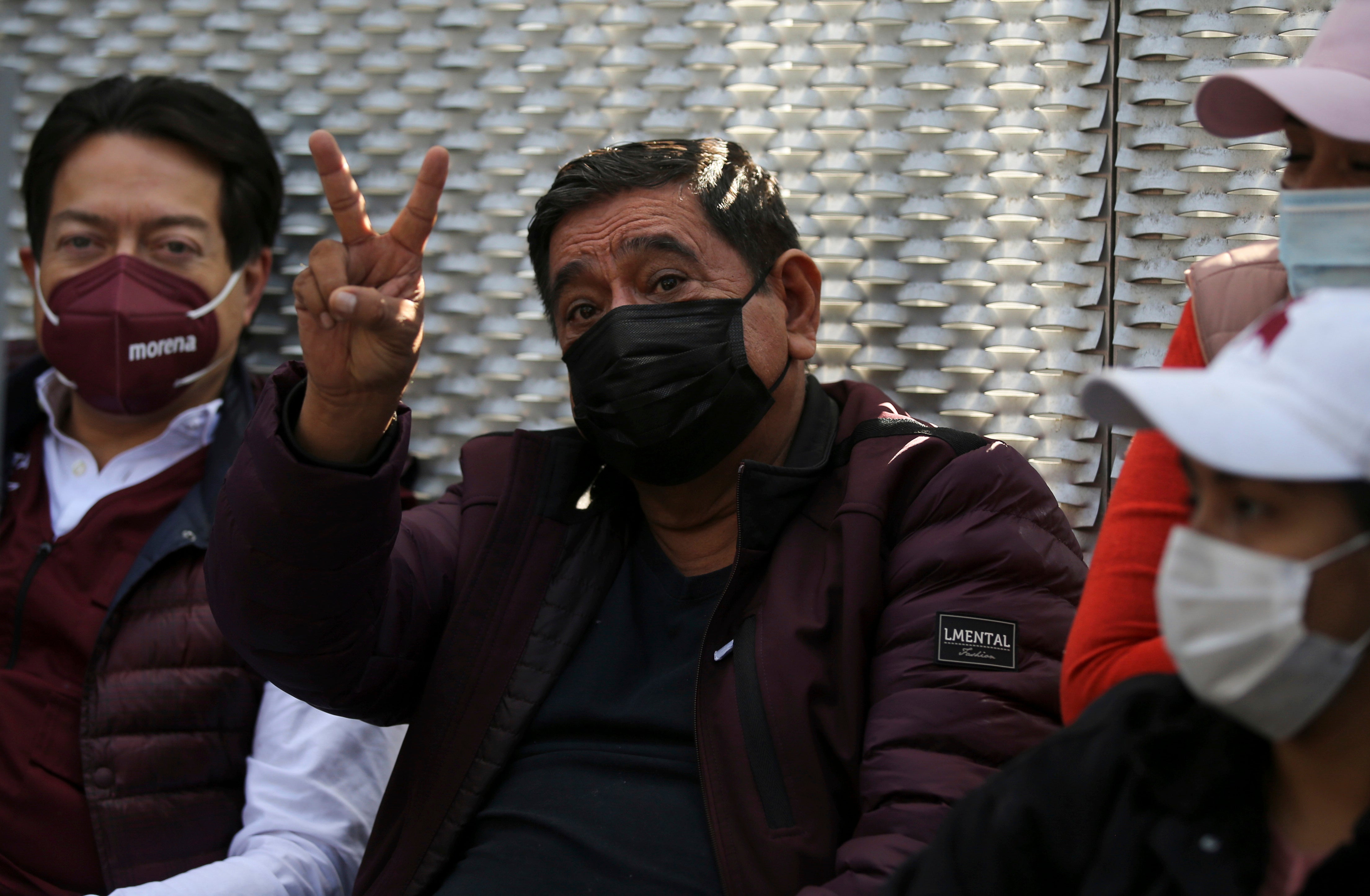Mexican candidate accused of rape vows to block elections
A Mexican ruling party state candidate accused of rape, whose candidacy was canceled by regulatory authorities on other grounds, says he will not allow elections in his home state unless he is allowed to run

Your support helps us to tell the story
From reproductive rights to climate change to Big Tech, The Independent is on the ground when the story is developing. Whether it's investigating the financials of Elon Musk's pro-Trump PAC or producing our latest documentary, 'The A Word', which shines a light on the American women fighting for reproductive rights, we know how important it is to parse out the facts from the messaging.
At such a critical moment in US history, we need reporters on the ground. Your donation allows us to keep sending journalists to speak to both sides of the story.
The Independent is trusted by Americans across the entire political spectrum. And unlike many other quality news outlets, we choose not to lock Americans out of our reporting and analysis with paywalls. We believe quality journalism should be available to everyone, paid for by those who can afford it.
Your support makes all the difference.A Mexican ruling party state candidate accused of rape, who later had his candidacy canceled by regulatory authorities on other grounds, said Sunday he will not allow elections in his home state unless he is allowed to run.
Félix Salgado is running for the governorship of the troubled Pacific coast state of Guerrero While two women accused him of rape, he has not been charged and was allowed by President Andrés Manuel López Obrador’s Morena party to continue running.
But in late March, elections regulators ordered him taken off the ballot, saying he failed to report campaign spending. The country's electoral court last week ordered the Federal Electoral Institute to reconsider that decision.
Salgado is leading a caravan of vehicles to protest at the electoral institute's office in Mexico City and on Sunday, Salgado said unless that decision is overturned, he won’t allow the June elections in Guerrero to occur without him.
“If we are on the ballot, there will be elections,” Salgado told a crowd of supporters in Iguala, Guerrero. “If are not on the ballot, there will not be any elections.”
The threat is entirely believable in Guerrero, which is home to the resort of Acapulco.
Guerrero is a violence-plagued state with a patchwork of drug gangs, vigilantes and militant farm groups that sometimes overlap. Elections have been partial disrupted in the past, and many former governors have been forced from office before finishing their terms.
López Obrador has defended Salgado and criticized women’s groups who objected to his candidacy, calling it "an attack on democracy.”
The National Electoral Institute ruled in late March that Salgado had failed to report the money he spent during the primary process, and that his candidacy would no longer be officially recognized. But the court ordered the institute to review that decision.
Mexico will hold state and federal mid-term elections on June 6.
Salgado won the nomination of López Obrador’s Morena party despite protests by women’s rights activists. He has not personally addressed the accusations, though his lawyer has denied them.
Salgado has not been charged; the statute of limitations ran out on one case and the other is still being investigated.
Salgado, who goes by the nickname Toro, or “Bull,” is a former federal legislator and mayor of Acapulco who has been been known for questionable behavior in the past. He was filmed scuffling with police in Mexico City in 2000.